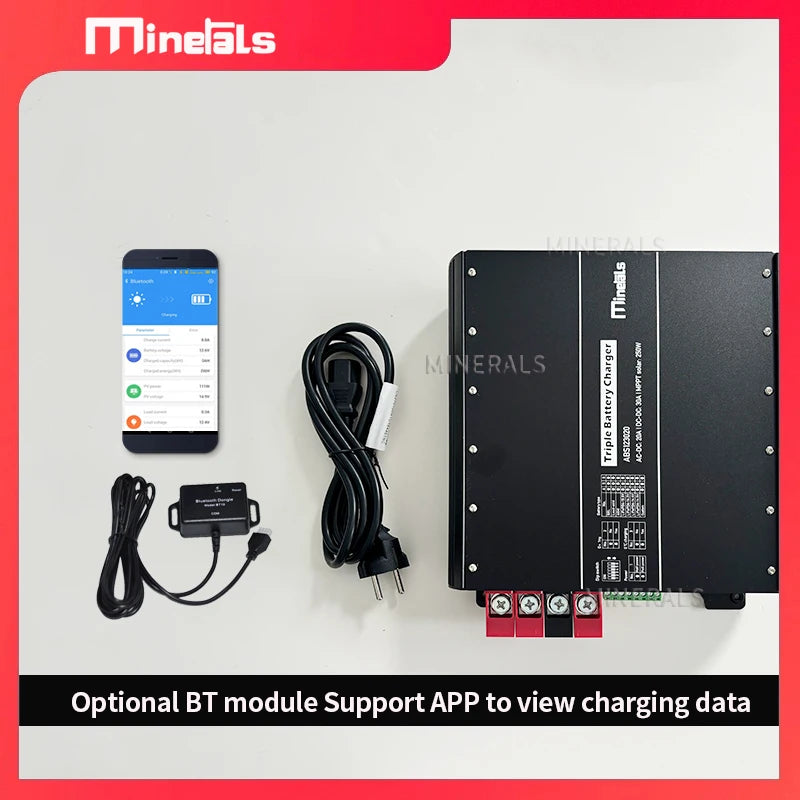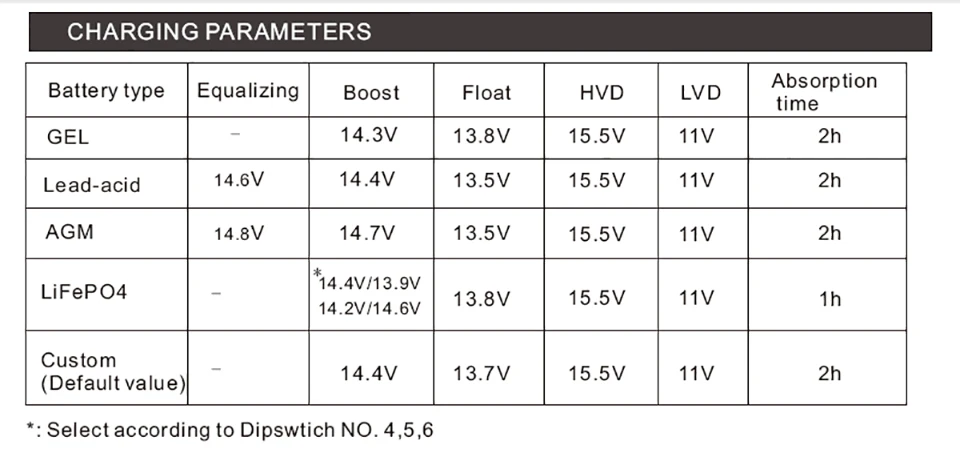
12v charger dc to dc booster 60a mppt Solar controller 30A AC 40A Charger for 12V battery Rv yacht charger
Reliable shipping
Flexible returns
SPECIFICATIONS
Brand Name: Minerals
Hign-concerned Chemical: None
Model Number: ABS126040
Origin: Mainland China
Type: Solar Chargers
If you want the corresponding Monitor display, please click onto this link to purchase the MT-2 Monitor display, the Monitor display and Bluetooth can be used at same time
https://www.aliexpress.com/item/1005002814511701.html
BT10
https://www.aliexpress.com/item/1005002814195409.html
Temperature
https://www.aliexpress.com/item/1005002702603642.html
Products will be upgraded gradually, there might be some minor functional differences after upgrading, if customers don’t know the functions clearly, please contact us, we will not accept the refund due to the products update

AC Charge
AC charging has priority. When the charger is connected to external AC socket, the AC
charging mode will start immediately, stop solar charging or B2B charging. When the
AC socket is removed, it will automatically switch to solar charging.
B2B (Battery to Battery)Charge
It means to charge the board battery through alternator and starter battery.
The "D+" signal of the alternator activates the charging converter automatically and switches it
off in case of an engine stop.
You can also use DIP switch 2 to achieve automatic charging without D+
1. When the vehicle is running, the vehicle alternator can quickly charge the main battery
through the charger at full power
2. The charger can charge the main battery according to the specified voltage and current by
boosting or stepping down to ensure that the main battery is in accordance with the standard
charging curve charging
MPPT Solar charge controller
Remove the AC socket connection, stop the engine (D+ low), orientate the solar panels towards
the sun. The charger works, the LED "Solar" is lighting.
Controllers according to the MPP technology are continuously and automatically calculating the
maximum power yield (MPP) of the solar modules several times per second. The voltage surplus
of the solar module will be transformed to a higher charging current for the battery (realised by
high-frequency switching controller technology with high efficiency). This surplus of charging
current ensures short charging times and the best possible power yield of the solar system.










